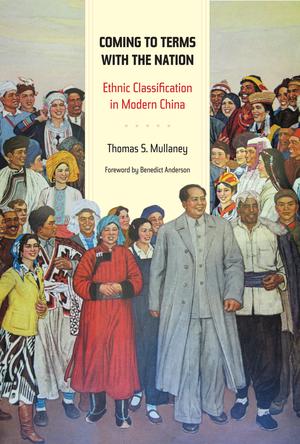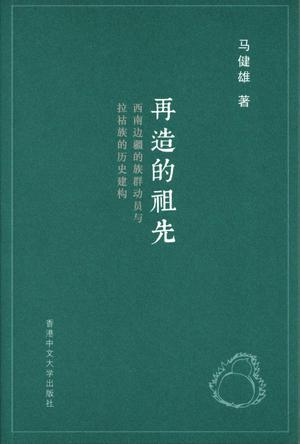欢迎来到相识电子书!
标签:民族识别
-
Coming to Terms with the Nation
China is a vast nation comprised of hundreds of distinct ethnic communities, each with its own language, history, and culture. Today the government of China recognizes just 56 ethnic nationalities, or minzu, as groups entitled to representation. This controversial new book recounts the history of the most sweeping attempt to sort and categorize the nation's enormous population: the 1954 Ethnic Classification project (minzu shibie). Thomas S. Mullaney draws on recently declassified material and extensive oral histories to describe how the communist government, in power less than a decade, launched this process in ethnically diverse Yunnan. Mullaney shows how the government drew on Republican-era scholarship for conceptual and methodological inspiration as it developed a strategy for identifying minzu and how non-Party-member Chinese ethnologists produced a "scientific" survey that would become the basis for a policy on nationalities. -
再造的祖先
1950年代,在建構合法性和穩定邊疆的內外需求下,國家開展了民族識別工作。中緬邊界上的「倮黑族」被改稱為「拉祜族」。然而,被改變的不只是名字,其族群的身份和歷史也被重新改寫:世代生活在西南邊疆並一直與漢人抗爭的「倮匪」,被替換成一個虛構的,從青海而來且與漢人友好共處的「拉祜族」。 拉祜身份替換的例子獨特且意味深長,其背後是知識在國家權力的籠罩下層層扭曲的過程:為配合國家的民族識別工作,歷史學者建立了一套中國民族史論述,確定了漢族的先進性及民族大團結的基調;拉祜族的知識精英依據這套論述,主動為族群塑造了一個符合國家需求的身份;而這種被再造的身份,在知識的多向流動中進入了拉祜村民的日常生活,逐漸替代了族群真正的身份和歷史。 作者經過十五年連續的田野調查,結合全面的史料梳理,剝離出在邊疆政治格局變化與國家主體性建立的背景下,「拉祜族」被邊緣化和重構的過程。同時,通過挖掘「倮黑」在與漢人和官軍的對抗中興起、遷徙的歷史,作者試圖為這個族群找回原本的信仰和身份 。 「希望這本書的讀者們在瞭解了那些塵封在官修史書背後的人們、他們的歷史和命運之後,或許能夠呼出一聲歎息。直到今天,南柵佛房的廢墟仍然靜靜地躺在森林中,沒有人將它與仍舊生活在這裡的人民聯繫在一起。」 ——馬健雄
热门标签
下载排行榜
- 1 梦的解析:最佳译本
- 2 李鸿章全传
- 3 淡定的智慧
- 4 心理操控术
- 5 哈佛口才课
- 6 俗世奇人
- 7 日瓦戈医生
- 8 笑死你的逻辑学
- 9 历史老师没教过的历史
- 10 1分钟和陌生人成为朋友


